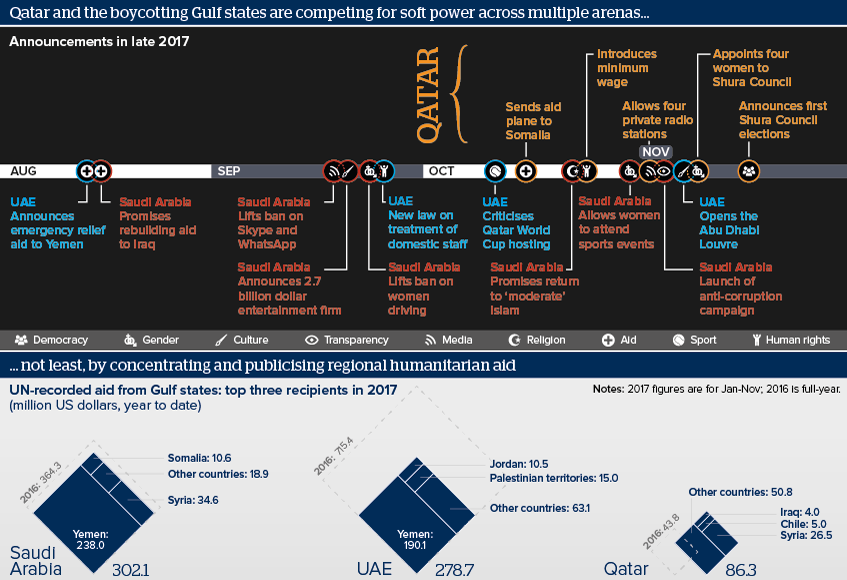The intra-Gulf war will be a battle of reputations
As Qatar and its foes settle into a long-term enmity, they are increasingly concerned about international appearances
Source: Oxford Analytica, UNOCHA Financial Tracking Service, OECD
Outlook
Except within the Trump administration, Doha is so far winning the war of international public opinion after four other Arab states launched a boycott against it in June. However, Riyadh and Abu Dhabi, backed by Cairo and Manama, are eager to change that. The rival Gulf states will deploy international public relations firms to make their case.
Saudi Arabia’s bid for greater global soft power also aligns with urgent domestic imperatives: Crown Prince Mohammed bin Salman wants to push anti-corruption and a greater role for women in order to achieve a wider economic and social reorganisation. For Qatar, though, foreign support is now key to survival.
Impacts
- The United Arab Emirates could lead on aid, boosting giving from the current 1.2% of gross national income and publicising it well.
- Qatar’s more urgent need for world backing could lead to deeper, verifiable human rights reforms.
- The road towards Doha’s hosting of the 2022 World Cup will be a key front line in the intra-Gulf rivalry.
- Depending primarily on Saudi Arabia, Bahrain is less focused on soft power; it can also be the most openly hostile to Qatar.
See also
- Polarised Gulf media will obscure facts - Jul 2, 2018
- GCC summit will underline its irrelevance - Nov 30, 2017
- Qatar will deploy Al Jazeera as a vital weapon - Oct 23, 2017
- More graphic analysis
